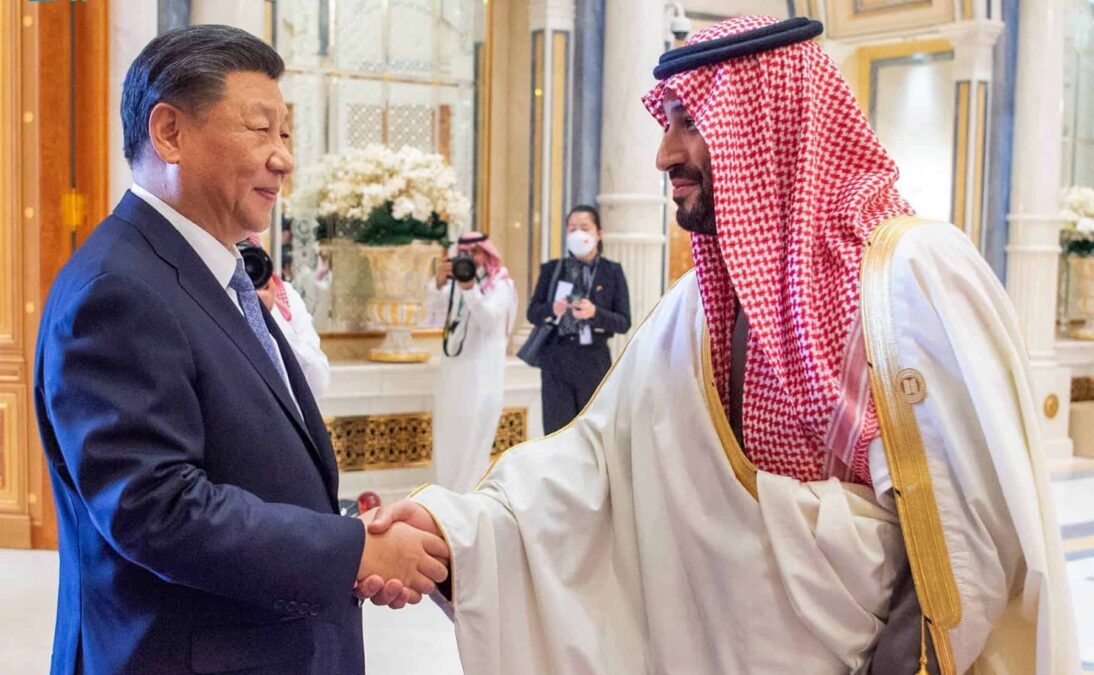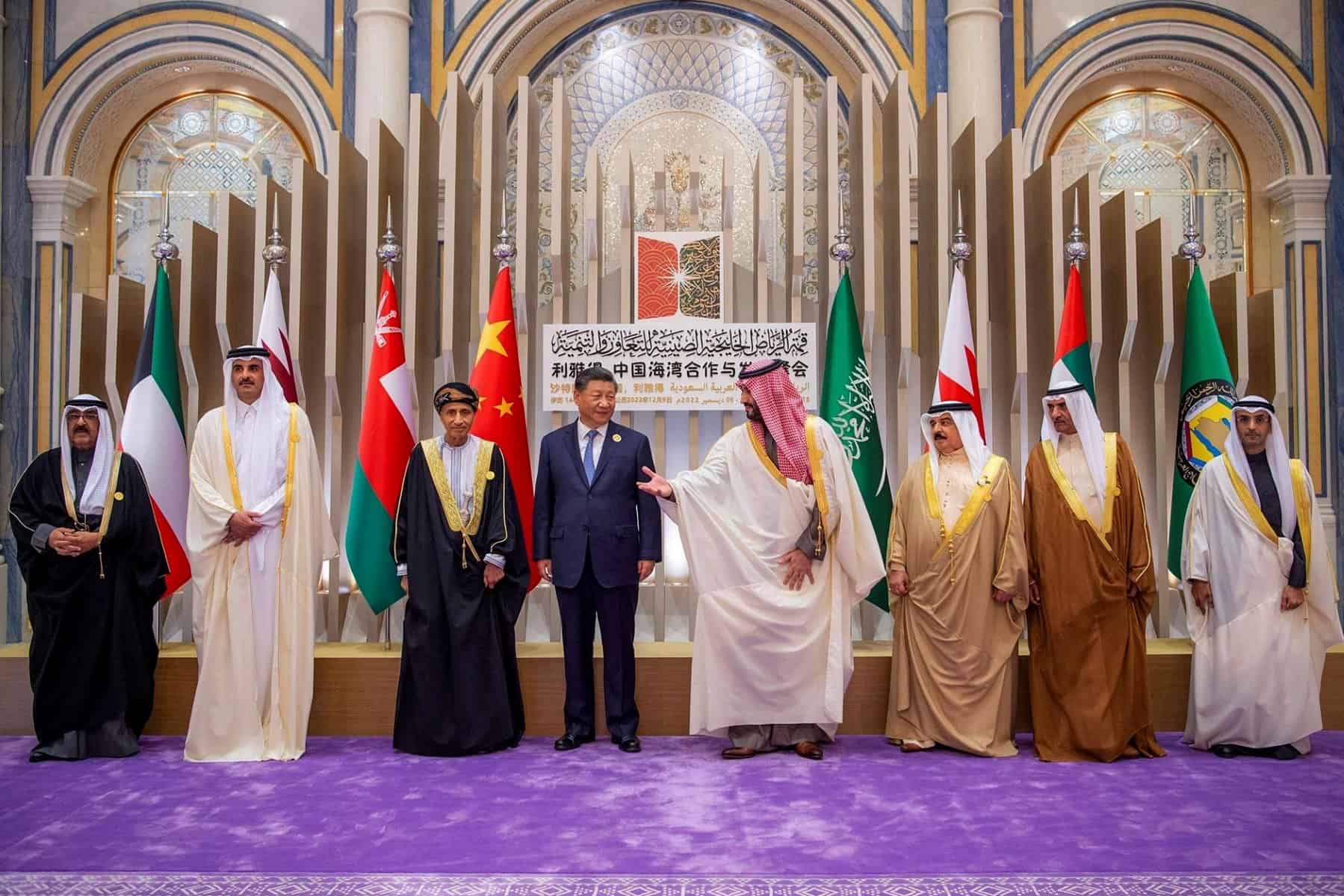Dubai, UAE – Despite concerns about the future of their long-standing security partnership with the United States, the oil-rich Gulf states are using their wealth to strengthen ties with China.
Since Chinese President Xi Jinping’s presence at the first Chinese-Gulf summit in Riyadh seven months ago, economic transactions between the world’s second-largest economy and the Gulf’s two largest economies, Saudi Arabia and the UAE, have picked up speed, detracting from the earlier centrality of crude oil purchases in the region that Beijing has historically dominated.
Among the deals that could benefit from closer ties in the coming months is Syngenta Group’s $9 billion IPO in Shanghai.
According to informed sources for Bloomberg Business, the state-backed company’s advisors are in talks with Middle Eastern sovereign funds, including the Abu Dhabi Investment Authority and the Saudi Public Investment Fund, about becoming a principal investor in the offering.
Massive Gulf investments
The value of Gulf companies’ acquisitions and investments in China this year increased by more than 1,000 percent yearly to $5.3 billion. As a result, this year is on track to be the highest in terms of the value of comparable deals ever.
According to informed sources, Abu Dhabi’s sovereign wealth fund, the “Mubadala Investment Company,” is expanding its operations in China.

Also, the number of Chinese companies visiting the Dubai Commodity Free Zone increased by 24 percent.
Officials in Riyadh describe China as a vital ally for Vision 2030. Various Chinese firms have been awarded contracts in the Red Sea city of Neom.
Relationships go beyond the economic aspect. At the December summit, Xi offered to mediate talks between Iran and Saudi Arabia, which resulted in the signing of a landmark agreement to restore relations between the two countries in Beijing last March.
US concerns about China
Already, Washington is concerned that China’s growing influence in the Middle East will jeopardize long-term US interests. While the US remains the Gulf states’ primary military partner, the commander of US Central Command, General Michael E. Korella, recently warned in congressional testimony of increased Chinese efforts to undermine this, pointing to an increase in Beijing’s civilian and military sales to the region.
Gulf officials have stated that their moves toward China are not intended to replace Washington as their primary partner. However, they also desire a broader set of global alliances.
Saudi Foreign Minister Prince Faisal bin Farhan said during a press conference with US Secretary of State Anthony Blinken during latter’s recent visit to the Kingdom in June that the Kingdom didn’t support “a zero-sum equation in relations.”
“We can all form multiple partnerships and commitments, and the US is doing the same in many cases,” he added.
China also supports this approach. Former Chinese envoy to the Middle East Wu Saik urged the region in July to “seek true multilateralism,” saying, “China and other countries can learn from each other, support each other, and move toward win-win cooperation.”
Thousands of Chinese business people and government officials arrived in Riyadh last month for the largest Chinese-Arab business gathering in history.
The Saudi government announced that the gathering saw the signing of memorandums of understanding worth more than $10 billion, including a $5.6 billion deal between the Saudis and Chinese electric car maker Human Horizons.
According to Bloomberg, the G42, the UAE based artificial intelligence company, led by National Security Adviser Sheikh Tahnoun bin Zayed Al Nahyan, has identified China as the best market for investment.
The presence of alternative partners would reduce the Gulf powers’ reliance on the US. In recent months, Saudi Arabia, the UAE, and other OPEC producers have repeatedly failed to respond to US pressure to increase production as Washington seeks to prevent high oil prices from fueling inflation.
The United States is working hard to improve relations with the Arab Gulf states. Senior American officials have traveled to Jeddah recently to meet with Saudi Crown Prince Mohammed bin Salman to resurrect the “Abraham Accords” peace process with Israel.
In public, however, the US officials welcome Chinese negotiations in the Middle East.
Blinken said in June: “We’ve also been very clear in emphasizing that we’re not asking anyone to choose between the US and China. We’re simply attempting to demonstrate the benefits of our collaboration and the positive agenda we bring to what we’re trying to accomplish.”
Trade, particularly oil, remains critical to the China-Gulf relationship. Saudi Chinese trade increased dramatically last year, reaching $117 billion from $834 million three decades ago.
According to Bloomberg data, Beijing’s trade with the UAE has nearly tripled to $107 billion in 2022 from $1.15 billion in 1992.
In a statement, the UAE expects “to continue to increase trade with China, as is the case with other major economic partners.”
Relations between China and the Arab Gulf states are improving in the energy sector. Saudi Arabia signed a $3.6 billion contract to purchase 10 percent of China’s Rongsheng Petrochemical.
“There are a lot of things we want to do with them, and likewise, they want to do more things,” Saudi Energy Minister Prince Abdulaziz bin Salman said of China during the Arab-Chinese Business Conference in Riyadh.
On the security front, Washington remains the Gulf states’ most ardent supporter, thanks to its military bases in the region. In addition, the United States is the largest source of foreign direct investment for countries like Saudi Arabia.
Korella, the head of US Central Command, testified before Congress that Chinese military sales in the region increased by 80 percent over the last decade, while US sales decreased by 30 percent. He expressed concern about “a race between integration with our partners and Chinese penetration in the region.”








